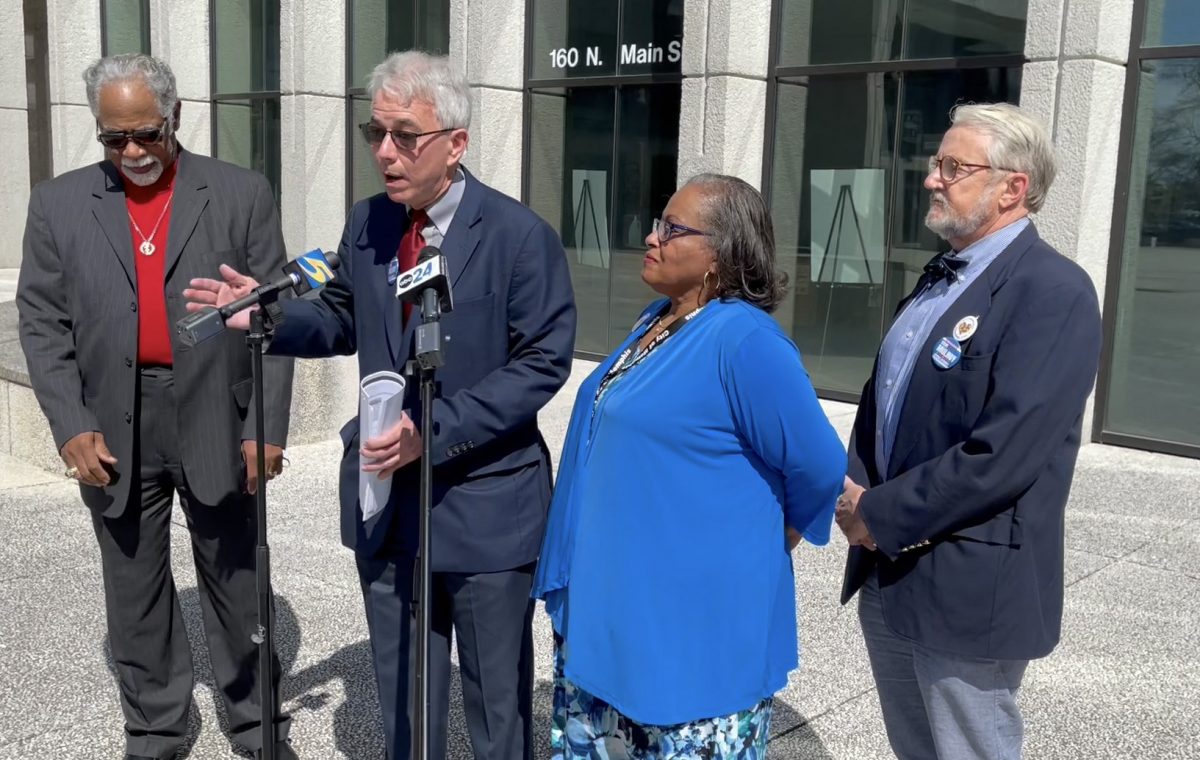More than 11 months since she was nominated to become the only Black member of the Tennessee Valley Authority’s (TVA) Board of Directors, Memphian Patrice Robinson is still waiting to take her seat. The nomination awaits approval from the Senate Environment and Public Works committee.
Robinson, a former Memphis City Council member, was nominated by President Joe Biden to the nine-member TVA board on September 11, 2023. She has yet to be confirmed. In fact, she has not even had a confirmation hearing, and it doesn’t look like one will be scheduled any time soon.
“I am still waiting to be confirmed by the Senate. This has just not been a priority,” Robinson said. “It has been a little nerve-wracking, but I am not there yet.”
Currently, eight people are seated on the nine-member board. All are white. None are from West Tennessee.
A federally owned utility company, TVA supplies electricity to parts of seven states. It is the exclusive supplier of electricity to Memphis. As TVA’s single largest power customer, city-owned Memphis Light, Gas & Water (MLGW) pays $1 billion a year for electricity. Yet the city has not had anyone on the TVA board since John Ryder, a Memphis attorney and former general counsel for the Republican National Committee, who died in May 2022, just months after leaving the board.
That is unacceptable, said state Rep. Justin J. Pearson.
“It is imperative that we get representation on the TVA board,” said Pearson (D-Memphis), a frequent critic of TVA. “We provide a significant amount of revenue for TVA. And we in Memphis have the greatest energy burden for any place in the country. We are spending a lot of our money on energy. Our voice is critically important.”
When contacted July 25 about the status of Robinson’s approval, a spokesperson for the the Senate Environment and Public Works committee offered a one-line email response: “The Senate Environment and Public Works Committee has yet to schedule further consideration of Patrice Robinson’s nomination.”
Gridlock on Congressional confirmations is nothing new and not unique to Robinson’s appointment. On July 30 at a U.S. Senate Committee on Rules and Administration hearing, an official with the nonprofit Partnership for Public Service urged Congress to streamline the process of approving presidential appointments, which she said hurts local communities and even threatens national security.
“The work required to select, nominate, and vote on presidential appointees is longer, more complicated, and more uncertain,” testified Jenny Mattingly of Partnership for Public Service in a written statement. “Many positions remain vacant for months or even years; some never will be filled.”
Previous appointments to the TVA board have also waited long periods before getting confirmed. Current board member Beth Geer of Brentwood, who works as the chief of staff for former vice president Al Gore, and two others, were first nominated in spring of 2021 but waited until December of 2022 to be approved.
Biden’s 2021 TVA board nominations included Kim Caudle Lewis, an African-American businesswoman from Huntsville, Alabama, but she withdrew to make an unsuccessful run for the Alabama state senate.
Robinson, 68, completed her two terms on the Memphis City Council in December, where she served as the council’s liaison to MLGW. She also spent 17 years as a supervisor with MLGW. The TVA board position became vacant in January with the retirement of former TVA board chairman Bill Kilbride of Chattanooga.
At the time of her nomination, U.S. Rep. Steve Cohen (D-Memphis) praised Robinson as the ideal person to represent Memphis and West Tennessee on the TVA board.
“Patrice Robinson has a lifetime of experience in utility management and public service and is the ideal candidate for the TVA Board. I am happy to see a Memphian again appointed to the board,” Cohen said in a statement.
Robinson said she has talked to a representative of the Senate committee, but she is right now “in a holding pattern.”
Four of TVA’s current eight board members are from Tennessee. But none of those four live anywhere close to Memphis (Nashville, Brentwood, Chattanooga and Johnson City). The others are from Alabama, Mississippi, Virginia and Kentucky.
Scott Brooks, TVA representative, said TVA has no influence on who is nominated nor confirmed for its board. The board has met twice since January, being one member short for each of those meetings. The board meets again on August 22 in Florence, Alabama.
Memphis has had previous TVA board members in addition to Ryder. Cohen’s office reported that Robinson would follow in the footsteps of these Memphians who previously served on the TVA board: Ron Walter, V. Lynn Evans, and Bishop William Graves.
Pearson suggested that public pressure could help get Robinson’s nomination confirmed, as it has worked in the past when Congressional confirmations have been delayed. Pearson has been highly critical of TVA’s pursuit of fossil-fuel generating plants at the expense of green energy such as wind and solar power.
“It makes no sense that we have no representation on the TVA board,” Pearson said. “We need someone to help elevate our issues. And to speak out against the horrible direction that the TVA is going.”
Robinson declined to comment on whether Memphis and West Tennessee citizens should be concerned that such an important component of the area’s energy supply has no representation. She said she would prefer to focus on her credentials for the job.
“I do believe I would represent West Tennessee and our community well. I have a utility background and a political background, and I cannot think of a better candidate,” Robinson said.



 Jackson Baker
Jackson Baker